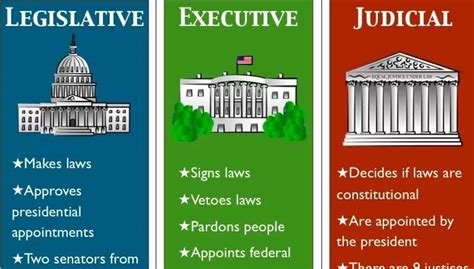The legislative branch is one of the three branches of government in Nigeria. It is responsible for making laws for the country. The legislative branch is made up of the Senate and the House of Representatives.

The Senate
The Senate is the upper house of the National Assembly. It is made up of 109 members, who are elected by the people of their states. The Senate has the power to make laws, approve presidential appointments, and declare war.
The House of Representatives
The House of Representatives is the lower house of the National Assembly. It is made up of 360 members, who are also elected by the people of their states. The House of Representatives has the power to make laws, approve presidential appointments, and impeach the president.
The Legislative Process
The legislative process begins when a bill is introduced in either the Senate or the House of Representatives. A bill is a proposed law. Once a bill is introduced, it is referred to a committee for consideration. The committee will hold hearings and debate the bill. If the committee approves the bill, it will be sent to the full chamber for a vote.
If the full chamber approves the bill, it will be sent to the other chamber for consideration. The other chamber will also hold hearings and debate the bill. If the other chamber approves the bill, it will be sent to the president for his signature.
If the president signs the bill, it will become law. If the president vetoes the bill, it will be sent back to the chamber that originally passed it. The chamber can override the president’s veto with a two-thirds vote.
The Role of the Legislative Branch in Nigeria
The legislative branch plays a vital role in Nigeria. It is responsible for making laws that govern the country. The legislative branch also has the power to approve presidential appointments and declare war.
The legislative branch is a key part of the Nigerian government. It is responsible for ensuring that the government is responsive to the needs of the people.
Conclusion
The legislative branch is one of the most important branches of government in Nigeria. It is responsible for making laws that govern the country. The legislative branch also has the power to approve presidential appointments and declare war.
The legislative branch is a key part of the Nigerian government. It is responsible for ensuring that the government is responsive to the needs of the people.
Tables
| Table 1: Members of the Senate |
|—|—|
| Number of members | 109 |
| Term of office | 4 years |
| Qualifications | Must be a citizen of Nigeria, at least 35 years old, and have a university degree |
| Table 2: Members of the House of Representatives |
|—|—|
| Number of members | 360 |
| Term of office | 4 years |
| Qualifications | Must be a citizen of Nigeria, at least 25 years old, and have a secondary school certificate |
| Table 3: The Legislative Process |
|—|—|
| Step 1 | A bill is introduced in either the Senate or the House of Representatives. |
| Step 2 | The bill is referred to a committee for consideration. |
| Step 3 | The committee holds hearings and debates the bill. |
| Step 4 | If the committee approves the bill, it is sent to the full chamber for a vote. |
| Step 5 | If the full chamber approves the bill, it is sent to the other chamber for consideration. |
| Step 6 | The other chamber also holds hearings and debates the bill. |
| Step 7 | If the other chamber approves the bill, it is sent to the president for his signature. |
| Step 8 | If the president signs the bill, it becomes law. |
| Table 4: The Role of the Legislative Branch in Nigeria |
|—|—|
| Makes laws |
| Approves presidential appointments |
| Declares war |
| Ensures that the government is responsive to the needs of the people |
Common Mistakes to Avoid
- Do not introduce a bill that is not relevant to the needs of the people.
- Do not try to pass a bill through the legislative process too quickly.
- Do not vote for a bill that you do not understand.
- Do not allow the legislative process to be used for personal gain.
How to Step-by-Step Approach
- Identify a need that is not being met by the current laws.
- Draft a bill that addresses the need.
- Introduce the bill in either the Senate or the House of Representatives.
- Work with the committee that is assigned to consider the bill.
- Debate the bill in the full chamber.
- Vote on the bill.
- If the bill is approved, send it to the other chamber for consideration.
- If the bill is approved by the other chamber, send it to the president for his signature.
Why Matters
The legislative branch plays a vital role in the Nigerian government. It is responsible for making laws that govern the country. The legislative branch also has the power to approve presidential appointments and declare war.
The legislative branch is a key part of the Nigerian government. It is responsible for ensuring that the government is responsive to the needs of the people.
Benefits
- The legislative branch ensures that the government is responsive to the needs of the people.
- The legislative branch helps to prevent the government from becoming too powerful.
- The legislative branch provides a forum for debate and discussion of important issues.
